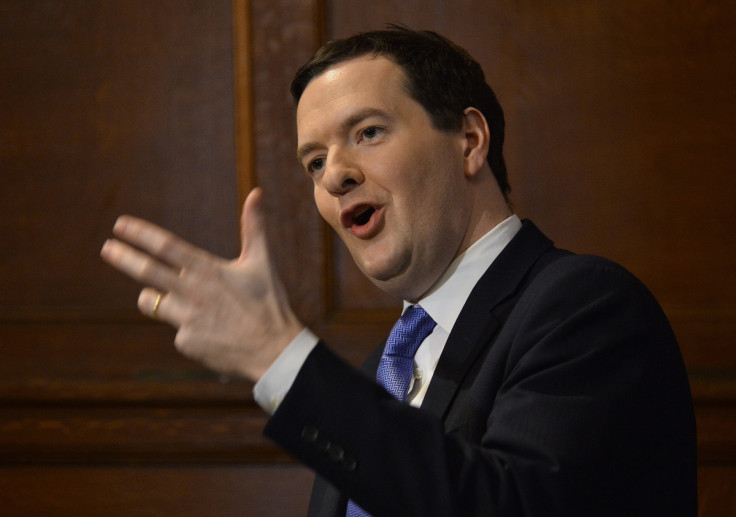George Osborne: I'll Hike UK Minimum Wage Above Inflation

Chancellor George Osborne has suggested he will hike the UK's national minimum wage in 2014 as the Tories seek to counter the opposition Labour party's "cost of living crisis" narrative ahead of the next general election.
Osborne said he wants to see an above-inflation increase in the minimum wage, which is currently £6.31 for those over the age of 21 and paid to around 1.35 million workers across the country, because the "economy can afford it".
Wages have been falling in real terms as they have grown more slowly than price inflation. Osborne said restoring the minimum wage to where it should be had it followed the path of inflation would take it to £7 per hour by 2015.
The chancellor told BBC News that the coalition government's austerity programme of public spending cuts has "rescued the country from the brink of disaster and got us into a position where we can now see the minimum wage going up for people".
"More broadly, I want living standards to go up for the whole country as we fix the economy," he added.
He has written to the Low Pay Commission, which advises the government on the minimum wage, suggesting there should be a rise.
Britain's economy has begun to recover from its slump in the wake of the financial crisis. Official figures show GDP growth accelerating across the first three quarters of 2013.
However the rise in output has yet to filter down into wage growth, which is growing at an annual rate of 0.8% against inflation of 2%, leaving incomes wallowing in real terms decline.
Households have also been hit by sharply rising bills, such as for gas and electricity, and government cuts to welfare spending.
Labour has sought to capitalise politically on this by highlighting the cost of living crisis and arguing that the economic recovery is not being felt by the many.
Osborne's comments on minimum wage are a shot across Labour's bows ahead of the 2015 general election.
Raising the minimum wage would be a significant attempt by the Tories to put the recovery into poorer Britons' pockets and knock down Labour's line of attack.
The Trades Union Congress (TUC) welcomed the chancellor's comments, but said the government should go further.
"While this would help many, the chancellor should be more ambitious about achieving decent pay rises across the whole of the UK workforce," said Frances O'Grady, general secretary of the TUC.
"The government should work with unions and employers to increase the spread of the living wage, lift the cap on public sector pay, and recognise that the wages of millions of workers across the economy have been falling in real terms and now need a decent increase."
"Recommending the rate of the national minimum wage must be a matter for the Low Pay Commission, as the chancellor recognises," said John Cridland, director general of the Confederation of British Industry (CBI), the UK's biggest business lobbyist.
"An unaffordable rise would end up costing jobs and hit smaller businesses in particular. Any increase in wages must reflect improved productivity."
Some economists fear that raising the minimum wage will lead to higher unemployment, as firms reduce headcounts to pay for a higher salary bill.
© Copyright IBTimes 2025. All rights reserved.






















